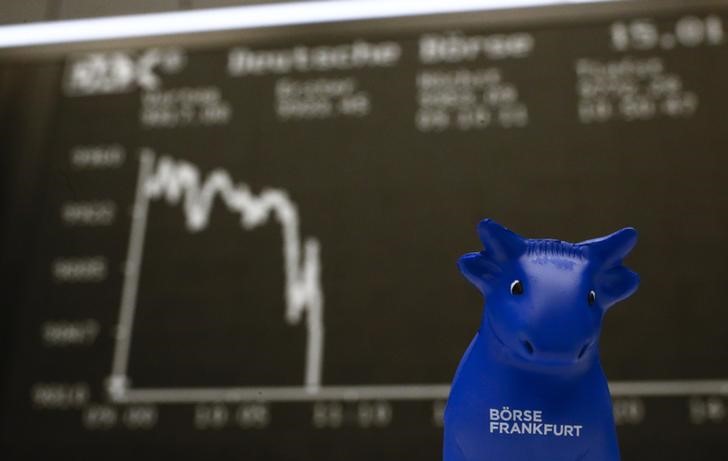Raymond James initiates QXO stock with Outperform rating on acquisition strategy
Investing.com - European stock markets retreated Monday, the last day of September, as investors digested a series of local economic releases as well as the differing performances of the major Asian indices.
At 03:05 ET (07:05 GMT), the DAX index in Germany traded 0.3% lower, the CAC 40 in France fell 0.5% and the FTSE 100 in the U.K. dropped 0.12%.
Differing Asian influences
The tepid start to the week comes after the benchmark pan-European Stoxx 600 index closed at a fresh record high on Friday, boosted by China’s announcement last week of a range of stimulus measures that aim to boost the world’s second-largest economy, also a major export market for Europe’s major companies.
The major Chinese stock indices posted strong gains Monday, including Hong Kong’s Hang Seng index soaring over 4%, after China's central bank late on Sunday said it would tell banks to lower mortgage rates for existing home loans before Oct. 31 - the latest in a slew of aggressive stimulus measures designed to support the country's struggling property market.
However, Japan’s Nikkei index fell almost 5% as investors priced in the risk of higher interest rates under new Prime Minister Shigeru Ishiba - a long-time critic of the Bank of Japan's uber-easy policies.
Additionally, Japanese industrial production fell 3.3% on the month in August, while housing starts fell 5.1% on an annual basis.
UK growth revised lower
Back in Europe, data released earlier Monday showed that the British economy grew by 0.5% in the second quarter, slightly below the preliminary estimate of 0.6% for gross domestic product growth.
Compared with the second quarter of 2023, the economy grew by 0.7%, slower than economists' forecasts of a 0.9% rise.
German inflation data are due later in the session, and are expected to show prices in the eurozone’s largest economy are increasing below the European Central Bank’s 2% medium-term target.
The ECB cut interest rates earlier this month, and speculation is mounting that the central bank will ease monetary policy again in October as slowing growth combines with cooling inflation.
Stellantis (NYSE:STLA) cuts annual guidance
In the corporate sector, Stellantis (EPA:STLAM) stock fell over 6% after the French-Italian carmaker slashed its annual guidance, citing a deterioration in global industry dynamics and Chinese competition on electric vehicles.
Staying with the auto sector, the British luxury carmaker Aston Martin (LON:AML) warned of lower annual core profit and said it no longer expects to achieve positive free cash flow in the first half, citing supply chain disruptions and weakness in China.
Crude rises on Middle East tensions
Oil prices rose Monday on the possibility of a widening Middle East conflict after Israel stepped up its attacks on the Iranian-backed Hezbollah and Houthi militant groups.
By 03:05 ET, the Brent contract climbed 1.2% to $72.44 per barrel, while U.S. crude futures (WTI) traded 1.1% higher at $68.94 per barrel.
Israel said it bombed Houthi targets in Yemen on Sunday, just a few days after killing Hezbollah leader Sayyed Hassan Nasrallah in an escalating conflict in Lebanon.
Both contracts fell last week as demand worries increased after fiscal stimulus from China, the world's second-biggest economy and top oil importer, failed to reassure market confidence.
